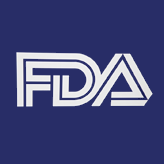Vismodegib Granted FDA Approval for Treatment of Basal Cell Carcinoma
The US Food and Drug Administration (FDA) announced the approval of vismodegib (Erivedge), for the treatment of advanced basal cell carcinoma, the most common type of skin cancer, for patients who are not eligible for surgery or radiation, and for metastatic disease.

The US Food and Drug Administration (FDA) announced the approval of vismodegib (Erivedge), for the treatment of advanced basal cell carcinoma, the most common type of skin cancer, for patients who are not eligible for surgery or radiation, and for metastatic disease.
The drug, delivered in a once-a-day oral capsule, is manufactured by Genentech and is the first approved drug for metastatic basal cell carcinoma.
Vismodegib was reviewed under the FDA’s priority review program that provides for an expedited 6-month review of drugs that may offer major advances in treatment.
“Today’s approval provides a new treatment for people with advanced basal cell carcinoma who, until now, had no approved medicines to help shrink disfiguring or potentially life-threatening lesions,” said Hal Barron, MD, chief medical officer and head, Global Product Development at Genentech, in a press release. “We are pleased that in the last six months we have been able to provide two new medicines for different types of advanced skin cancer to people who previously had few or no treatment options.” Genentech also produces vemurafenib (Zelboraf), approved last year for melanoma patients who harbor a BRAF V600E mutation.
In the pivotal study, involving 96 patients, vismodegib shrank tumors or healed lesions in 43% of patients with locally advanced basal cell carcinoma (27 of 63) and in 30% of patients with metastatic basal cell carcinoma (10 of 33). The objective response rates for the two groups were 60% and 46%, respectively, and progression-free survival for both groups was 9.5 months. Study participants received 150 mg of vismodegib orally, once daily, until disease progression or unacceptable toxicity.
Basal cell carcinoma is associated with mutations in components of the hedgehog signaling pathway. These mutations can result in unrestrained proliferation of basal cells of the skin. “Our understanding of molecular pathways involved in cancer, such as the hedgehog pathway, has enabled the development of targeted drugs for specific diseases,” said Richard Pazdur, MD, director of the Office of Hematology and Oncology Products in the FDA’s Center for Drug Evaluation and Research, in a press release announcing the approval. “This approach is becoming more common and will potentially allow cancer drugs to be developed more quickly. This is important for patients, who will have access to more effective therapies with potentially fewer side effects.”
The most common adverse events reported for patients taking vismodegib were muscle spasms, alopecia, dysgeusia, nausea, diarrhea, fatigue, decreased appetite, arthralgias, constipation, vomiting, and ageusia.
Vismodegib is being approved with a boxed warning alerting patients and health care professionals of the potential risk of death or severe birth effects to a fetus. Pregnancy status must be verified prior to the start of vismodegib treatment. Male and female patients should be warned about these risks and the need for birth control.